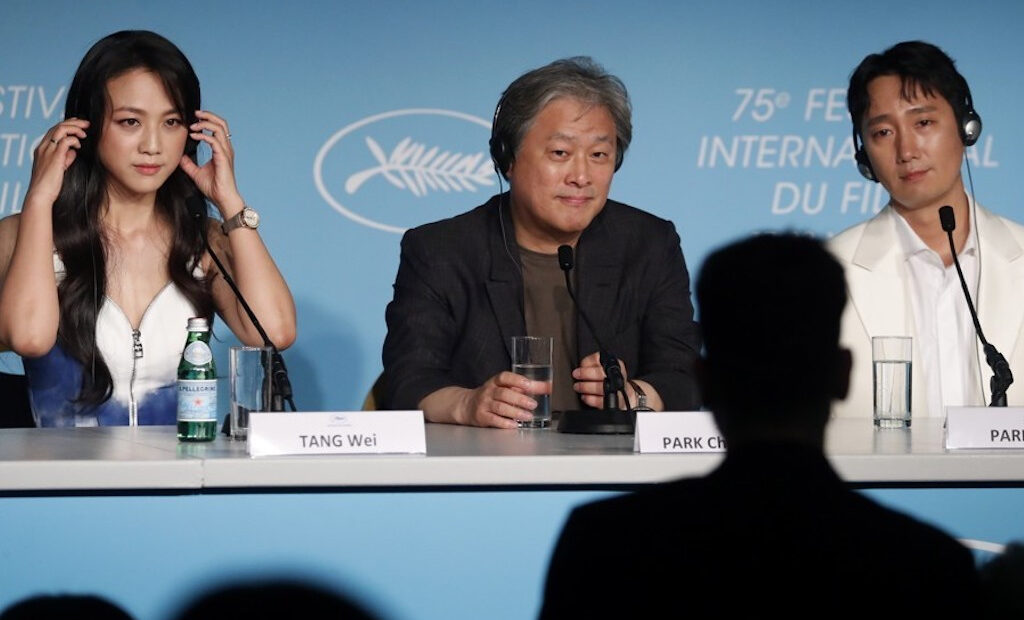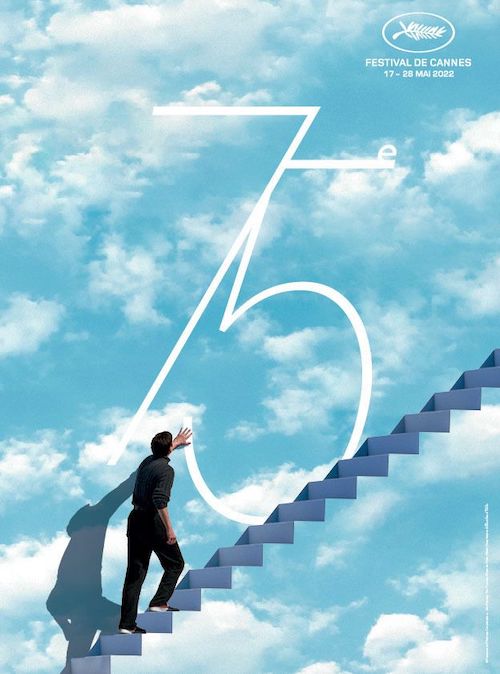“Love is a relationship between two people where they show who they really are”: Press conference with the team behind Decision to Leave

Following the screening of Park Chan-wook’s latest film, Decision to Leave, which sees a detective form an intimate bond with the top subject of his latest case, The Upcoming was able to attend a press conference at Cannes Film Festival with director Park Chang-wook, co-writer Seo-kyeong Jeong and lead actors Tang Wei and Park Hae-il.
During the half-hour conference the panel spoke about initial language barriers, the colour blue and what love means to the director.
I heard the film was based on a song? Could you tell us about that?
Seo-kyeong Jeong: I hadn’t listened to the song before working on this film. I did listen to it while writing the script, though. I take a more logical approach to writing than Chan-wook. He was inspired by the mountains, so that’s where I adopted the misty atmosphere from.
What was it like collaborating with Chan-wook?
SJ: This wasn’t the first time I’ve had the pleasure of working with Chan-wook. He gives us lots of information about what we’re doing while protecting us from what we didn’t need to know either. He makes us all feel at ease. I’m a very big fan of his films.
Park Hae-il: I loved working with the director and being part of his genius.
Tang Wei: It was such a great experience. After one of the screenings, I remember taking Chan-wook aside and telling him, “You made my life feel complete”.
Park Chang-wook: It was a pleasure for me working with you all, too.
What was the greatest difficulty in making this film?
TW: There was no difficulty in making this film – it was an enjoyable process. The challenge rose when it came to the practicality of shooting. I don’t speak Korean, so we initially had to use a translator machine while on set.
Is there any movie that inspired you to make Decision to Leave?
PC: A lot of journalists asked me if Vertigo was one of my influences. I’d never thought of that before, so I asked them what they meant. After hearing their explanations, I understand that there are some similarities. However, I wasn’t inspired by any one thing; I was inspired by a number of different films and books. I wasn’t thinking of just one film.
You’re known as a lover of classical music – is there any reason you were drawn to using Mahler in the soundtrack?
PC: I used this music because I wanted to avoid it. The music I used had to fit into the edit, and this was the only thing I found that worked, so I gave in. The same movement appears in Death In Venice, and I didn’t want to copy it. But there’s no law that says I couldn’t use it, so I did.
What is the significance between all of the blues and greens in your film?
PC: The blues and greens are the colours of the mountains and the sea. Both things are completely different but are part of the same species; the colours of the mountains are the same as the colours that you see in the sea – they really lend themselves to each other. It’s like they’re characters that you can’t figure out – a lot like Seo-rae’s dress: sometimes it looks blue, sometimes it appears green.
You have a flare for telling love stories in the strangest ways. How do you see love?
PC: My life isn’t part of my work. It might be for other directors, but I don’t make films like that. I’m not sure how much of my personal thoughts transpired in the script, but, to answer your question about what love is, love is a relationship between two people where they show who they really are.
With all the climbing involved, how demanding was your role?
PH: Filming these scenes wasn’t physically exhausting. However, I wasn’t sure how the director wanted me to emote as my character at times. Sometimes I would feel a bit lost, but I’d gradually come to understand who my character really was.
What’s the challenge in shooting violence?
PC: I’m not so keen on action and stunts, but some scenes require it. I do my best and wanted to use my own procedure when it comes to action scenes. I want to be different from other filmmakers; I want to ensure that my action scenes portray my characters’ emotions.
What attracted you to the character of Seo-rae?
TW: The character is very close to me, and that made her more engaging. She’s a very subtle character who speaks from her heart. That’s what attracted me to her.
Why isn’t there much sex or violence in this film?
PC: Had another director made this film, you wouldn’t be asking that, so why are you asking me? I actually spoke to distributors about a similar question the other day for international markets. They wanted to say it was a “new development” for my films and I said, “No. Don’t say that.” Sex and violence weren’t necessary for the film I wanted to make. I wanted to make a film for adults. And when I was told that would mean an erotic movie, I thought that was kind of funny. Why should an adult movie need to be erotic?
Andrew Murray
Photo: Joachim Tournebize/FDC
Decision to Leave does not have a UK release date yet.
Read our review of Decision to Leave here.
Read more reviews from our Cannes Film Festival 2022 coverage here.
For further information about the event visit the Cannes Film Festival website here.
Watch the trailer for Decision to Leave here:
























Facebook
Twitter
Instagram
YouTube
RSS